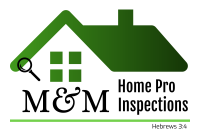FREQUENTLY ASKED QUESTIONS
A home inspection is performed by a licensed home inspector and is designed to provide a thorough, detailed examination of visible, accessible areas of a home, usually during the process of buying or selling a home.
An inspection performed by a professional home inspector gives you a clearer understanding of your property’s condition through the experience and training of an unbiased third party. If you are buying or selling a home, coming up on your one-year builder warranty, or simply question the condition of your current home, a home inspection can be a valuable investment.
A typical home inspection normally includes major components including:
- Foundation, grading, drainage, guttering
- Roof covering materials, roof structures, attic spaces
- Driveways, walkways, patios
- Porches, balconies, decks, carports
- Walls, ceilings, floors
- Doors, windows, stairways
- Fireplaces, chimneys
- Electrical, heating, ventilation, cooling systems
- Plumbing systems and fixtures, gas lines
- Major appliances, including garage door openers
Licensed home inspectors must have the education and experience required by the Texas Real Estate Commission (TREC) and pass a state licensing exam to become a licensed home inspector. As a TREC licensed home inspector, they must comply with the regulations in the TREC Standard of Practice.
No. A home inspection and a repair estimate are unrelated. A licensed home inspector is there to help gain a better understanding of the overall condition of your home. For the cost of repairs, you will need further advice from the proper professional.
You can schedule it yourself or have your real estate agent help set it up for you.
Depending on your home’s square footage, a home inspection usually takes around 2 to 4 hours.
Although it’s not required, it is always a good idea to be there. You are welcome to follow along if you like or ask questions you may have at the time. Also, your home inspector has the opportunity to go over the inspection with you when it’s complete and explain his findings.
The cost will vary based on your home’s square footage, and the presence of certain items on your property, for example, if you have a crawlspace or additional outbuilding you would like to have inspected as well.
Your home inspector will provide an inspection report summarizing what was inspected, defects identified, and recommendations they may have. There are minimum guidelines established by the Texas Real Estate Commission.
An inspection is based on the visible and accessible areas of the property and reflects its condition as of the day of the inspection. It is not a warranty that future repairs won’t be needed – your home inspector doesn’t know what might happen the next day, week or year. You should, however, have confidence that major defects will not be overlooked, and a good inspector will address your concerns when it comes to any oversight.
That’s up to you and the seller. You can negotiate that the repairs be made before closing or use the information from your inspection to negotiate the final price of your home. Decisions you make should be included in your contract.
It’s not guaranteed to eliminate risk all together. However, it will give you peace of mind that you’re not buying “a lemon.” Your home inspector is an ally in the home buying and selling process. Buying a home may be the biggest investment you make in your life, so hiring a licensed home inspector to perform a thorough inspection is worth the cost.
